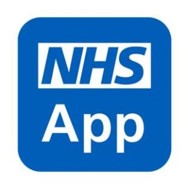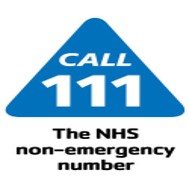
Moving More Platform Free Health and Wellbeing Support Armed Forces Day Learning Disability Week MARKYATE SURGERY – UPDATE ✅ Carers Week 2024 Healthy Living programme for people with type 2 diabetes Carers Coffee Morning ☕ Get Your Whooping Cough Vaccine Bank Holiday Opening Times
Minor Operations
At Rothschild House Group we provide minor surgery appointments, to allow patients a rapid access, local service with minimum inconvenience to our patients.
Patients need to have been seen by a doctor in the first instance to ensure that they are suitable for the relevant procedure. Following this assessment patients will be booked a 15 minute appointment for minor surgery by our Patient Services Team. Please note we do have a waiting list which is monitored, and appointments are allocated accordingly.
We have a fully equipped treatment room where the procedure will be completed and during the appointment the doctor will also be assisted by an appropriately trained member of our Nursing Team. As we are a training practice sometimes there may be a foundation doctor and/or a GP registrar shadowing the procedure too. Should you not wish for the trainee/s to be present during the procedure please do let the leading doctor know and they will ask them to leave the room for the duration.
Before your procedure
You can eat meals as normal beforehand.
You may prefer to arrange for somebody else to bring you to your appointment and take you home afterwards. We would recommend this if your lesion affects your vision or if the patient is frail.
You only need to expose the affected area, but it helps to wear loose fitting clothing.
Please try to arrive 10 minutes before the expected time of your procedure and check in as normal in order to assist with the smooth running of the clinic.
You will be awake throughout, and no sedation is required. The procedure will be conducted under local anaesthetic (an injection with a very fine needle to make the area go numb). You will feel a mild discomfort for a few seconds as the anaesthetic is administered.
What to expect
Before your procedure the doctor will explain exactly what is being done and why. You will have the opportunity to ask any questions about the procedure being performed and/or any alternative treatments – including what you may experience if you decided not to have the procedure.
We would like to emphasise that any procedure involving cutting the skin will result in a scar. In some circumstances the scar may be larger or more prominent than the lesion being removed.
If a lesion has been cut out or biopsied (where a small piece of the lesion is removed to help with diagnosis) then it will be sent for “Histology”. This is routine for all cases and does not necessarily mean that we suspect malignancy. Histology means that the sample will go to the hospital, where an expert will look at it under the microscope and provide a diagnosis.
The reporting time on these results vary but we work to a ‘no news good news policy’ whereby if the sample was returned to us as normal, we would not contact the patient to confirm this. There are multiple ways patients can view their test results, the easiest way is via the NHS App. However, should you not be able to view your histology results on there within a month or you do not have access to the App, patients can submit an administrative eConsult form, or call our general enquiries line between 2-5pm.
If there is a clinical need, we will contact you and advise what the next steps are.
Looking after your wound
Unless the doctor advises otherwise, any dressings should remain dry and intact for 24 hours. After 24 hours you may have a shower and gently pat the wound dry afterwards. Avoid applying talcum powder directly to the wound for two weeks as it may cause irritation or soreness and impair the healing process.
For a better cosmetic result, we would recommend you cover the wound with a plaster or a high factor suncream for at least a year, when the area is exposed to strong sun rays e.g. on holiday.
Stitches
Not all procedures involve stitches. However, if you have non-dissolving stitches you will need to book an appointment with the practice nurse to have your stitches removed. We recommend that you book this appointment on the day of your operation before you leave. The doctor will advise you when your stitches should be removed before you leave.
Pain relief
The local anaesthetic will start to wear off 3 hours after your procedure. If needed, you can take some painkillers 2 hours after your operation so that they start to work as your anaesthetic wears off.
Other things to note
We advise patients not to drink alcohol for 24 hours after the procedure as it can increase the risk of bleeding.
Complications
Complications are rare.
If your wound is bleeding then this can usually be stopped by applying firm pressure over the dressing, with a clean dry cloth or towel, for 10 minutes.
Should the bleeding not stop after 15 minutes of compression to the wound, we would advise that you attend A&E, however this is extremely rare following a minor operation.
Signs of infection include a fever, increasing redness or pain around the wound and a mucky green or yellow discharge.
Occasionally you may notice an area of numbness adjacent to the wound as a result of damage to one of the small nerves in the skin. This may return to normal after a period of several weeks but in some instances it may be permanent.
If you think you have an infection or have any concerns about your wound following minor surgery then please contact the surgery to discuss this further, we may request a photo of the area to allow the doctor to view the affected area.
Other complications could include: bruising, inflammation, delayed healing, wound breakdown, failure of procedure or recurrence, scarring.
You should be able to return to normal activities, including driving as soon as you feel able.
Most patients will be back at work soon after.
Audit
We regularly review and audit our minor surgery. We do this to quality check our results and to help identify any potential problems.










